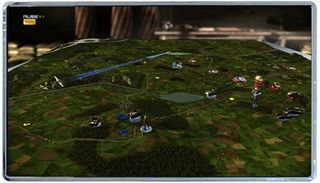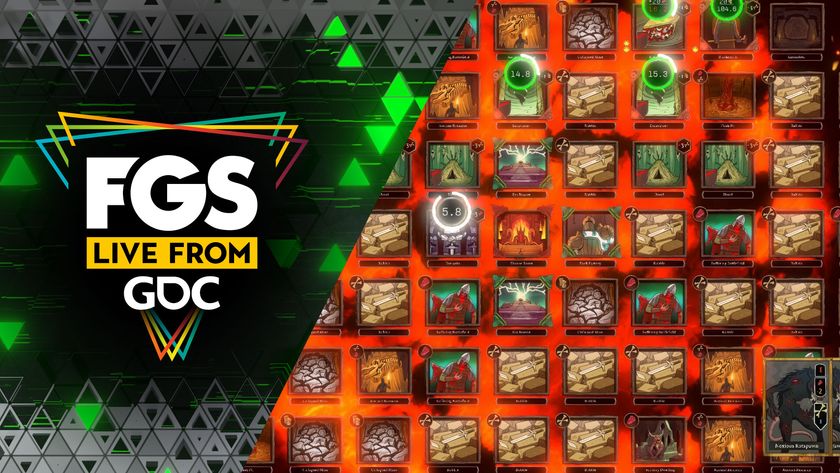RUSE
Lying has become the new tactic of choice
Generals are shifty buggers. Hitler, for example, would often call up Churchill and claim to have sent 4,000 Maus tanks to Newcastle. Winston would hop on the train to go up and have a look, leaving Number 10 undefended. Such deception is a key element of war, as established by Sun Tzu in The Art of War – a book now read exclusively by advertising bumholes.

Why such a crucial tactic has been under-represented in RTS games is baffling, and RUSE’s titular feints are what set it apart in the staid World War II strategy genre. That and its unique presentation. It’s laid out in front of you as a tabletop board game, to the extent that you can see the edges of the table and the slick, glossy chips used to represent units. Zoom in and the chips fade into animated troops and armour, and scale to their surroundings. The ceiling becomes a sky, and the game becomes reality.
Build bases, position anti-air turrets in forests, plant some airfields and factories and start pumping out your offensive and defensive forces. The idea is to control different regions. Your ruses, the tools of your deception, act on these provinces. The radio silence ruse conceals the movements of every unit in that area. The camouflage net conceals buildings. Blitz doubles unit movement speeds.
Known enemy locations are marked with red silhouettes (radar does most of this, while air and ground units can scout ahead). But both armies can fake advances – your foe might send some red silhouetted tanks to your eastern front, causing you to move your own forces to defend. On your arrival, the enemy forces will vanish, having never existed. Meanwhile, the actual armoured brigade will begin to appear on your now undefended western border. That’s a textbook ruse right there.

Deception is the idea then, and RUSE deceives even further by appearing mildly more complex than it is. These are straightforward units and the game abides by straightforward rules. RUSE on PC is even - put down your tea for this - playable on a gamepad. RUSE is less about fiddly micromanagement and more about selecting, pointing and moving. Which is fine by us, as it means we might actually stand a chance when we take the game online. Or perhaps we’re only deceiving ourselves.
Nov 16, 2009
Sign up to the 12DOVE Newsletter
Weekly digests, tales from the communities you love, and more
Steve Hogarty is a London-based freelance journalist covering games and technology. His bylines have appeared in publications including GamesRadar, The Independent, Yahoo, VICE, Eurogamer, and more. He is also the co-host of the pocast, Regular Features.













